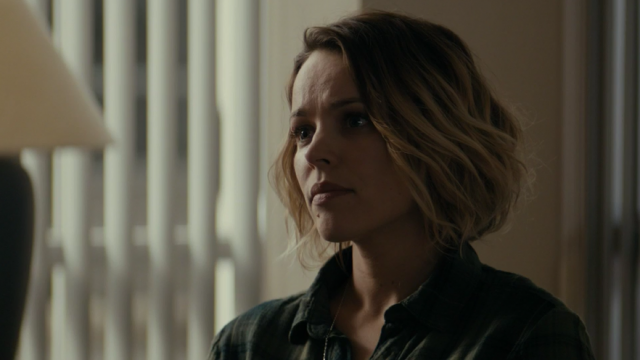Storytelling is lying. What we hear, what we see, is not actually happening. What we see and hear is false, but what we feel is real. That means that storytelling depends on trust like no other art form. We don’t stand back and observe as in painting; we don’t get affected and try and understand later like music. Storytelling depends on something so basic to humanity, our ability to accept and to feel a representation of reality–right now–as the real thing.
All of this prefaces a simple gut reaction: when someone takes a shotgun blast to the chest and another to the balls in the last minute of one episode, you fucking well do not have him walking around just fine in the next. It’s not about “where the gun was aimed” or “they just wanted to warn him.” We trust in the audience that when we’re affected, when we laugh or cry or (like last week) gasp in horror, that it’s not just done to affect us. We trust that if there are consequences for us, there are consequences for the characters. True Detective now has the same problem that so many other stories (especially, it seems, on cable TV) have: we know now that it’s a lie, and it can’t be watched the same way again.
Leave out the little detail of Ray getting shot last week (seriously, where did that second shot go?) and this is still a fairly weak episode, with some strong character beats and not much in the way of plot advancement. Between Ray meeting up with his father and Frank administering a necessary beatdown on another criminal, we can see Pizzolatto’s theme of the past’s effect on the present break down to a stark question: are you always what you were? Ray keeps looking if he can be other than what he was, and what his father was. It’s a good moment to have his doctor ask “do you want to live?” but it wasn’t necessary to shoot him to get him there; he’s back on the case quicker than a leading cast member of CTU on 24. (When you make long for the realistic plotting of 24, you’re in trouble.)
As his father, Fred Ward brings his magnificent bulldog look to his two scenes, the first of which (the first scene of the episode) is a Lynchian dream sequence complete with Conway Twitty impersonator, by far tonight’s best moment. The second scene has him reminiscing about the good ol’ days of the 1980s and 1990s “under Gates, back when you could actually do police work.” It’s an effective idea, to show us how distant that past has already become, exactly as far away as the LAPD of the 1930s was in Ellroy’s L. A. Confidential. But it’s a really bad idea to give Ward the line “no country for white men, boy.” It violates one of the rules of referencing: never allude to a work of art better than your own.
With Frank, the question goes the other way; as he’s told before that fight, “you ain’t that thing no more,” and it’s clear that he’d better still be that thing. His deals keep falling apart on him, the Russian (Timothy Murphy, late of Sons of Anarchy) he’d partnered with abandons him, another partner turns up dead, and he can’t get a child or apparently an erection anymore. (Castration anxiety is all over this episode but it isn’t going anywhere yet.) Vince Vaughn remains the most interesting thing about this season, and I still want to know what he’ll do next. He seems closer than ever to simply snapping and going full-on warlord here and that would keep my interest.
Much of the rest of the episode flags; the procedural picks up a few new details without really going forward. New director Janus Metz doesn’t make Los Angeles have the displacement that Justin Lin brought to the first two episodes, never mind what Cary Joji Fukunaga did last season. A scene in nightclub feels just like anyone else’s scene in a nightclub; a scene of a film location in what looks like an industrial quarry doesn’t use the camera to investigate the space the way Lin or Fukunaga did; and a chase on foot through a homeless camp doesn’t come close to what Kathryn Bigelow did in Point Break. (Ray does a pretty good job keeping up for someone who was shot the day before.) As Ani, Rachel McAdams gets a good scene of dumping her boyfriend, and another scene where she’s not exactly told to fuck Ray, but she does know now it would help her career if she did and got information from him that way. Always good to see Michael Hyatt show up, here as one of Ani’s bosses; in fact the strongest performances come from the minor characters–Kelly Reilly as Frank’s wife, Ronnie Blevins as his former business partner, Abigail Spencer as Ray’s ex, trying to get him to just walk away, and Joey Jennings as Paul’s fellow soldier, still reeling from PTSD. All of them land their scenes, but the story isn’t with them.
True Detective was never perfect, but one of the things it always had was a compelling story, something that made us ask the audience’s fundamental question: what happens next? After this episode, I’ll keep watching, but I don’t think I’ll be asking that again.
Reviews for this season of True Detective will appear weekly Sunday night/Monday morning.

